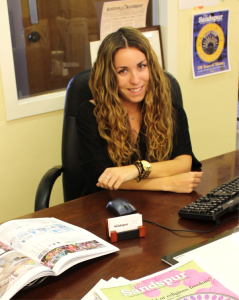“Estonian women, including women with mental disabilities, were forced into prostitution.” “Groups considered most vulnerable to human trafficking in Mexico include women, children, indigenous persons, persons with mental and physical disabilities and undocumented migrants.” “In 2011, shelter administrators in Uzbekistan noticed an increase in the number of victims who were targeted due to mental handicap or learning disability.” These quotes, taken from The U.S. Department of State’s 2012 Trafficking in Persons Report, highlight the nexus that exists between being disabled and becoming a victim of human trafficking. The marginalization often associated with having a mental or physical disability not only puts citizens of foreign nations in a more vulnerable position to become trafficked, but also puts citizens of the United States in a similar position every day.
For example, in 2013 federal prosecutors in Philadelphia indicted five people on charges of hate crimes against the disabled that included kidnapping, murder in aid of racketeering, and forced human labor after a landlord discovered four malnourished victims locked in the filthy basement of a Tacony neighborhood apartment. The ringleader of the now infamous, “Basement of Horrors,” targeted the mentally disabled by tricking them into designating her as their caretaker. She and her accomplices collected the victim’s social security payments in excess of $212,000, and periodically forced two of their female victims into prostitution as a source of additional fraudulent income over a 10-year period.
Also in 2013, the guardian of a 19-year-old “profoundly disabled” Minnesota girl was charged with neglect after she left the girl alone in a motel room with a man who advertised sex with the girl for $200 on website, “LiveLinks”. According to the indictment, the man forced the girl to have sex with five sex buyers who came to the motel room that day and threatened to hurt her if she refused. For several weeks after that incident, the girl’s guardian continued to drop her off at the man’s apartment, where he would then drive her to Minneapolis forcing her to have sex with numerous men while he stood nearby and collected his payment.
In 2010 a Florida man manipulated his 17-year-old, developmentally disabled girlfriend into prostitution in order to pay off a debt he claimed to owe a dangerous smuggler who helped him enter the country without proper documentation. The man took the girl, who had an IQ of 58, to migrant labor camps in Hillsborough County where sex buyers paid $25 each to have sex with her. He also attempted to have the girl recruit her 19-year-old friend with the mental capacity of a second-grader to prostitute for him, as well. He raped the friend when she refused his proposition. The man was charged with a sex offense against a minor and federal conspiracy to engage in sex trafficking of minors.
The U.S. Department of State cites cites a general lack of resources and severely diminished social status as two of the primary driving forces that allow for so many disabled individuals to become victims of human trafficking around the world. In some countries, parents of disabled children place them in exploitive situations to offset the diminished hopes they have for their children’s future job or marriage prospects Many schools fail to properly accommodate the particular needs of disabled students, resulting in high drop out rates that leave many on the streets where they are faced with an even higher risk of becoming trafficked.
While the United States is fortunate enough to have a more sophisticated set of programs in place to curb many of the potential dangers the disabled face, there are still disconcerting similarities between individuals trafficked abroad and in the United States. Those with disabilities are deliberately targeted for their vulnerable status and exploited to the fullest and most invasive extent. Widespread research has yet to be done on disabled victims of human trafficking in the states, but recent instances portrayed in the news reveal that our disabled neighbors are not completely immune from the ill-fated and very real threat trafficking poses. As activists, non-profits, and government agencies continue to make notable strides in eradicating human trafficking, it is vital to emphasize that the disabled face a host of unique problems that can land them directly in the cross-hairs of human traffickers. Going forward, a more comprehensive understanding of the connections between disabilities and trafficking may help to allow the United States to better address this devastating crime against humanity.
Jamie Pizzi is currently a first-year law student at the Villanova University Charles Widger School of Law. Jamie is from Palm City, Florida and received her undergraduate degree in Anthropology and Political Science from Rollins College. After graduation, Jamie would like to do public interest work related to women’s rights or criminal law.



